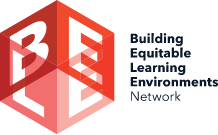Insights From the Caregiver Community
By the BELE Network

To holistically educate young people, school leaders must engage caregivers as co-designers of their students’ learning environments. This is at the core of the BELE Network’s fourth Essential Action: Partner with Caregivers and Communities. In practice, that means creating opportunities that center the experiences of students and caregivers, develop collaborative relationships with caregivers, and result in authentic school-family partnerships with a shared mission to build equitable learning environments.
To do so, Insights From the Caregiver Community: Building Authentic School and Family Partnerships — authored by the Collaborative for Academic, Social, and Emotional Learning (CASEL) as part of the BELE Learning Series, — provides four key insights gathered from caregivers:
- School leaders can increase the willingness of families and caregivers to engage in partnership when they demonstrate a commitment to creating a responsive school culture.
As school leaders aim to create school environments that are responsive to and involve reciprocal relationships with caregivers, it is important that school leaders:
— Develop an understanding of the values of students and caregivers who are a part of the school community.
— Acquire resources that help them identify and address the needs of students and caregivers in the school community.
— Provide, together with staff, opportunities for caregivers to participate in creating, implementing, and assessing decisions in the learning environment. - To build authentic school-family partnerships, consider providing opportunities for caregivers to create community with each other without the presence of school leaders, educators, or staff.
Initial steps to provide these opportunities include:
— Regularly providing parents with time and space to confer about their experiences and ideas for improvement, without school staff being present.
— Having parents and school leadership identify a person who is not considered a staff member to lead parent and caregiver outreach to create an inclusive space.
— Require formal governing boards (e.g., Parent Teacher Associations or Local School Councils) to consult with parents and caregivers in this space about any decisions that will be taken to school leaders, in addition to school leaders providing additional partnership opportunities with caregivers. - Parents desire authentic relationships with educators that are rooted in Social Emotional Learning (SEL) practices to collaboratively improve students’ education.
These findings indicate a need for a school culture that is inclusive of SEL in its daily practices. Some recommendations include:
— Having school leaders normalize the use of SEL in the school’s daily practices and policies. This should be exemplified in adult-adult, adult-student, and student-student interactions among leaders, educators, caregivers, community members, and students.
— Providing resources, collaborative learning opportunities, and school-sponsored social events to educators and caregivers to develop their SEL skills.
— Ensuring that SEL learning opportunities and social events for students and adults are representative of students’ and caregivers’ cultural values, beliefs, and practices.
— Having school leaders and educators regularly engage students, caregivers, and members of their communities in the neighborhoods outside of the school building to improve relationships and communication. - Time and space for caregivers to refine their own SEL skills among themselves, with their children, and with educators can empower them to partake in more leadership roles within the school.
School leaders who want to engage caregivers through empowering partnerships can largely benefit from SEL programming that increases agency and belonging among caregivers. Parents’ participation in CASEL’s dialogue series allowed them to draw upon their own knowledge and experiences to meaningfully identify with the SEL competencies.
To learn more about working with caregivers, check out the BELE Network’s second Learning Brief.
The BELE Network is working alongside partner members to share learning briefs to advance equity in education, which are grounded in seven Essential Actions. We encourage you to visit the BELE Resource Library, an evolving repository of resources and recommendations, to find the resources best suited to your unique needs. You can also subscribe to the BELE monthly newsletter here to get the latest learnings straight to your inbox.
The BELE Network is dedicated to reimagining our inequitable school system that has failed too many for too long, and is committed to transforming our classrooms into learning environments that nurture the intellectual, emotional and cultural growth of all students — especially students of color. Learn more about BELE on our website, and access our resource library to get the best and most up-to-date thinking on how to make learning environments more equitable.

